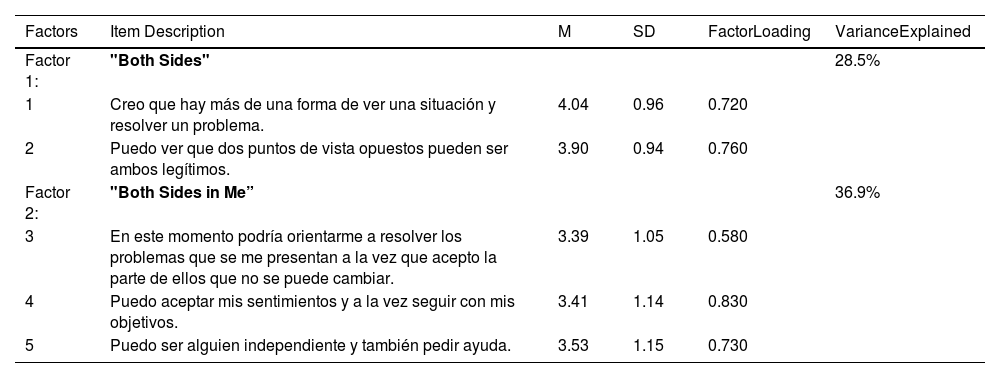Dialectical thinking is a core component of dialectical behavior therapy (DBT), characterized by the synthesis of seemingly opposing ideas to develop a more comprehensive perspective. This study aimed to create a reliable and valid instrument for measuring dialectical thinking.
MethodWe analyzed the psychometric properties of the Dialectical Thinking Scale in a mixed sample of 205 participants. Factor structure with both exploratory and confirmatory factor analyses, reliability, test-retest stability, sensitivity to change, and convergent validity were evaluated.
ResultsThe final resulting questionnaire consisted of a 5-item self-reported scale. The analyses revealed a distinct two-factor structure: "Both Sides" (the capacity to recognize and accept opposing perspectives as simultaneously valid, thereby fostering cognitive flexibility and reducing polarized thinking) and "Both Sides in Me" (the ability to integrate and accept internal contradictions). The scale exhibited high internal consistency (Cronbach's alpha = 0.81), and robust test-retest reliability (ICC = 0.82 for "Both Sides" and 0.64 for "Both Sides in Me"). The scale demonstrated satisfactory sensitivity to change after psychotherapeutic intervention and showed significant negative correlations with psychopathological symptoms.
ConclusionsThis scale addresses a critical gap in clinical assessment tools for DBT and it holds promise for applications across mental disorders and social studies.






